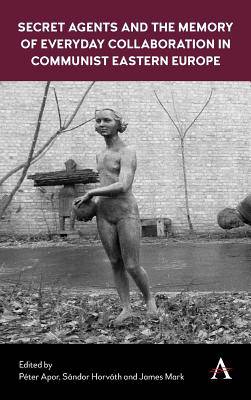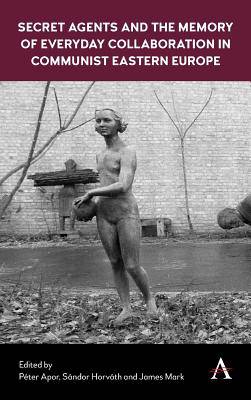
- Retrait gratuit dans votre magasin Club
- 7.000.000 titres dans notre catalogue
- Payer en toute sécurité
- Toujours un magasin près de chez vous
- Retrait gratuit dans votre magasin Club
- 7.000.0000 titres dans notre catalogue
- Payer en toute sécurité
- Toujours un magasin près de chez vous
Secret Agents and the Memory of Everyday Collaboration in Communist Eastern Europe
Description
Whilst debates over secret agents and the public revelation of lists of former collaborators have fascinated both post-Communist societies and the wider world, it is surprising how little has been written either on the nature of Communist-era collaboration or the processes through which post-Communist societies have sought to make sense of what collaboration was, and how it should be dealt with in the present. This is surprising given the amount of work that has been produced on the themes of resistance and victimization.
Unlike more popular (and often lurid) accounts of collaboration, which naturalise the concept as an obvious and incontestable characterization of Communist-era behaviour, 'Secret Agents and the Memory of Everyday Collaboration in Communist Eastern Europe' rather interrogates the ways in which Post-Socialist cultures produce the idea of, and knowledge about, 'collaborators'. It addresses those institutions which produce the concept and examines the function, social representation and history of secret police archives and institutes of national memory that create these histories of collaboration. This work seeks to provide a more nuanced historical conception of 'collaboration', expanding the concept towards broader frameworks of cooperation and political participation in order to facilitate a better understanding of the maintenance of Eastern European Communist regimes.
This work contends that secret police files are too often used to provide a one dimensional historical account of the 'mechanisms of oppression'. It demonstrates, through case studies, how secret police files can be used to produce more subtle social and cultural histories of the socialist dictatorships. Of particular importance is the focus on the microhistorical. Contributions here explore the motivations and moralities of becoming an agent, the personal decisions and social consequences such steps involved as well as the everyday milieus in which agents lived and were active. This book analyses communities of cooperation, with particular focus on local and mid-level party organizations, organs of the church organs and artist or intellectual networks. Ranging across differing categories of collaborators and different social milieux across East-Central Europe, this work provides a comparative account of collaboration and participation with a range hitherto unavailable.
Spécifications
Parties prenantes
- Editeur:
Contenu
- Nombre de pages :
- 376
- Langue:
- Anglais
- Collection :
Caractéristiques
- EAN:
- 9781783087235
- Date de parution :
- 27-09-17
- Format:
- Livre relié
- Format numérique:
- Genaaid
- Dimensions :
- 152 mm x 229 mm
- Poids :
- 721 g

Les avis
Nous publions uniquement les avis qui respectent les conditions requises. Consultez nos conditions pour les avis.





